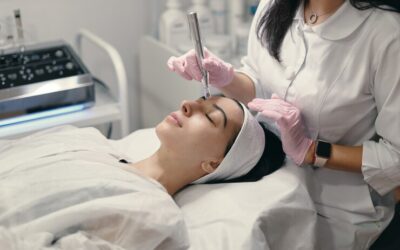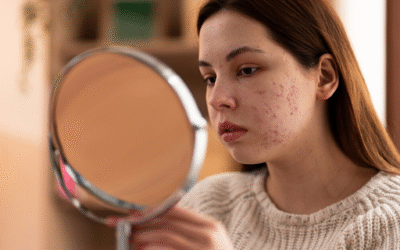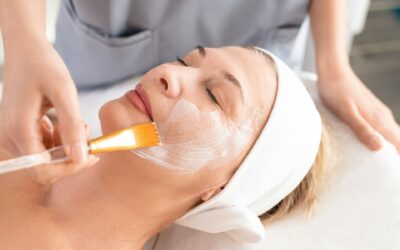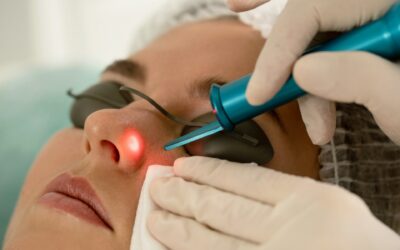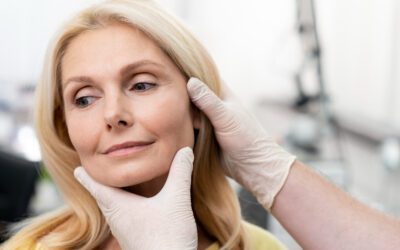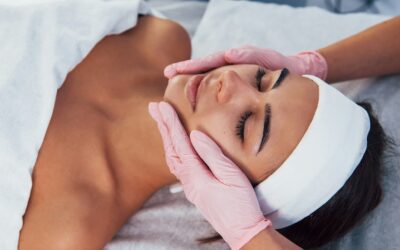Everyone’s skin is unique, and each person may face different skin issues at some point. Common skin problems can be frustrating and challenging, from pesky pimples to persistent redness. Understanding what causes these conditions and how to treat them effectively is essential for maintaining healthy, clear skin.
Acne, hyperpigmentation, eczema, and rosacea are some of the most frequent skin concerns people experience. These issues can affect your confidence and overall well-being, whether adolescent acne or adult rosacea. The good news is that understanding the root causes and exploring targeted treatments can significantly improve your skin’s appearance and health.
In this guide, we’ll explore these common skin problems, discuss their causes, and share practical solutions to help you manage them. By combining professional treatments and at-home care, you’ll be well on your way to achieving smoother, more radiant skin.
Understanding Acne and Its Treatments
Acne is one of the most common skin problems, affecting people of all ages. It occurs when hair follicles become clogged with oil and dead skin cells. This can lead to the formation of pimples, blackheads, whiteheads, and even cysts. Hormonal changes, stress, diet, and genetics are all known to contribute to acne.
Maintaining a consistent skincare routine is one of the first steps in treating acne. Cleansing your face twice daily with a gentle cleanser can help remove excess oils and prevent clogged pores. Exfoliating once a week can also help keep your skin clear, but be cautious not to over-exfoliate, as this can irritate your skin.
Topical treatments are highly effective for managing acne. Products containing benzoyl peroxide, salicylic acid, or retinoids can reduce inflammation and promote cell turnover. For more severe cases, a dermatologist may recommend prescription medications like oral antibiotics or hormonal treatments. Additionally, professional treatments such as chemical peels, laser therapy, and microneedling can significantly improve acne and prevent future breakouts.
Addressing Hyperpigmentation: Causes and Solutions
Hyperpigmentation is another common skin issue characterized by darkened patches or spots. It occurs when there is an overproduction of melanin, the pigment responsible for skin colour. Sun exposure, hormonal changes, and inflammation from acne or injuries can contribute to hyperpigmentation.
Preventing hyperpigmentation starts with protecting your skin from the sun. Wearing sunscreen with at least SPF 30 daily, even on cloudy days, is crucial. Wide-brimmed hats and protective clothing can shield your skin from harmful UV rays.
Treatments for hyperpigmentation focus on lightening the dark spots and evening out the skin tone. Topical treatments with vitamin C, niacinamide, and hydroquinone can reduce pigmentation. In-office treatments such as chemical peels, laser therapy, and microdermabrasion can provide more immediate results.
Maintaining a regular skincare routine and avoiding picking or scratching the skin are essential steps to prevent hyperpigmentation from worsening. You can achieve a more even and radiant complexion with the right approach.
Managing Eczema: Tips for Relief
Eczema, or atopic dermatitis, is a chronic skin condition that causes itching, redness, and inflammation. Environmental factors, stress, and allergens often trigger it. Managing eczema can be challenging, but understanding its triggers and following a comprehensive skincare routine can help relieve symptoms.
First and foremost, moisturizing is crucial for eczema-prone skin. Choose thick, fragrance-free creams or ointments that create a barrier to lock in moisture. Apply moisturizer immediately after bathing to prevent skin from drying out. Using lukewarm water instead of hot water and limiting bath time can also help.
Another crucial step is to avoid known triggers. Common irritants include harsh soaps, detergents, and certain fabrics like wool. Identifying and avoiding these triggers can significantly reduce flare-ups. Wearing breathable, soft clothing and hypoallergenic products can also make a big difference.
Topical treatments can provide relief during flare-ups. Hydrocortisone creams and ointments are often used to reduce inflammation and itching. A doctor might prescribe stronger medications or light therapy for more severe cases. Understanding your skin’s needs and maintaining a gentle skincare routine will help manage eczema symptoms effectively.
Effective Ways to Combat Rosacea
Rosacea is a chronic skin condition that causes redness, visible blood vessels, and sometimes bumps similar to acne. It typically affects the central part of the face and can be triggered by factors like sun exposure, spicy foods, alcohol, and stress. Managing rosacea involves identifying and avoiding these triggers while using treatments to control symptoms.
Sun protection is essential for anyone with rosacea. Always apply a broad-spectrum sunscreen with an SPF of at least 30 before going outside. Wearing hats and seeking shade can further protect your skin from triggers.
Gentle skincare is vital for rosacea-prone skin. Use mild, non-irritating cleansers and moisturizers to keep the skin calm and hydrated. Avoid products containing alcohol, witch hazel, or menthol, as these can exacerbate symptoms.
Various treatments can help manage rosacea. Topical medications like metronidazole and azelaic acid can reduce redness and inflammation. Oral antibiotics are sometimes prescribed for more severe cases. Laser and light therapies can target visible blood vessels and provide long-term relief. Working with a dermatologist to develop a tailored treatment plan can significantly improve your skin’s appearance and comfort.
Conclusion
Addressing common skin problems like acne, hyperpigmentation, eczema, and rosacea requires a comprehensive approach that combines daily skincare routines, avoids triggers, and seeks targeted treatments. You can effectively manage these conditions and achieve healthier skin with the proper knowledge and resources.
Remember that everyone’s skin is unique, and what works for one person may not work for another. Patience and consistency are essential when trying new treatments or skincare routines. Consulting a skin care professional can provide personalized guidance and more advanced options if you struggle with persistent skin issues.
Taking care of your skin can significantly improve your overall well-being and confidence. At Monarch Medical Skin and Laser, we offer a range of treatments and consultations to help you achieve the best possible skin health. Schedule your appointment with one of our facial plastic surgeons in Okanagan and start your journey to clearer, healthier skin.

